Your Diet Affects Your Mind
 According to information presented by researchers at the Alzheimer’s Association International Conference 2017 (AAIC 2017), which was cited in an article published online in Clinical Neurology News, the decrements in brain glucose metabolism that occur in Alzheimer’s Disease are region-specific. Deficits in glucose metabolism hit the thalamus, and temporal and parietal cortices – all pathologically important in Alzheimer’s Disease – particularly hard. Additionally, the brain glucose deficit isn’t unique to the elderly, or even to patients with Alzheimer’s Disease; it also occurs in those who have a family history of the disease, who carry the APOE4 allele, those with presenilin-1 mutations, and those with insulin resistance and diabetes, and changes in brain glucose metabolism can develop years before any cognitive symptoms manifest and seem to increase the risk of Alzheimer’s.
According to information presented by researchers at the Alzheimer’s Association International Conference 2017 (AAIC 2017), which was cited in an article published online in Clinical Neurology News, the decrements in brain glucose metabolism that occur in Alzheimer’s Disease are region-specific. Deficits in glucose metabolism hit the thalamus, and temporal and parietal cortices – all pathologically important in Alzheimer’s Disease – particularly hard. Additionally, the brain glucose deficit isn’t unique to the elderly, or even to patients with Alzheimer’s Disease; it also occurs in those who have a family history of the disease, who carry the APOE4 allele, those with presenilin-1 mutations, and those with insulin resistance and diabetes, and changes in brain glucose metabolism can develop years before any cognitive symptoms manifest and seem to increase the risk of Alzheimer’s.
Cognitively normal, healthy older adults experience a 10% reduction in the brain’s ability to metabolize glucose compared to healthy young people, but “this decline accelerates as Alzheimer’s hits. Those with early Alzheimer’s Disease have a 20% reduction in glucose utilization, compared with healthy elders, according to researchers presenting information at AAIC 2017 and cited in an article published online in Clinical Neurology News.
Diet modification can reduce risk of Alzheimer’s Disease has largely focused on the heart-healthy diets already proven successful in preventing and treating hypertension, diabetes, and cardiovascular disease. Most notably, the MIND diet cut the risk of Alzheimer’s Disease by up to 53% and slowed aging-related cognitive decline. MIND stands for Mediterranean-DASH Intervention for Neurodegenerative Delay.
The MIND diet recommends eating 10 foods daily and avoiding five types of foods.
The healthy-food group contains:
1. Vegetables
2. Green leafy vegetables
3. Berries (especially blueberries)
4. Nuts
5. Beans
6. Wine
7. Whole grains
8. Fish
9. Poultry
10. Olive oil
The five unhealthy foods are:
1. Fried or fast food
2. Red meats
3. Cheeses
4. Butter and stick margarine
5. Pastries and sweets
Are You Wondering How Your Diet Affects Your Mind?
Learn How We Can Help
Dr. Burdorf offers a program called Science-Based Nutrition. If you would like to schedule a consultation with him to find out what foods or supplements you should be adding to your diet, call his office at 480-951-5006 or Schedule your appointment here.
